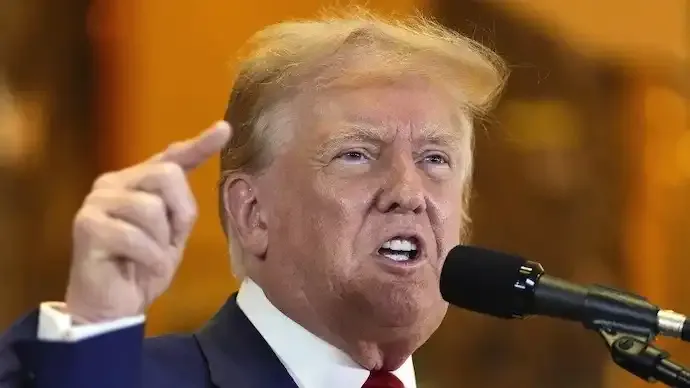Shopping cart
Your cart empty!
Terms of use dolor sit amet consectetur, adipisicing elit. Recusandae provident ullam aperiam quo ad non corrupti sit vel quam repellat ipsa quod sed, repellendus adipisci, ducimus ea modi odio assumenda.
Lorem ipsum dolor sit amet consectetur adipisicing elit. Sequi, cum esse possimus officiis amet ea voluptatibus libero! Dolorum assumenda esse, deserunt ipsum ad iusto! Praesentium error nobis tenetur at, quis nostrum facere excepturi architecto totam.
Lorem ipsum dolor sit amet consectetur adipisicing elit. Inventore, soluta alias eaque modi ipsum sint iusto fugiat vero velit rerum.
Sequi, cum esse possimus officiis amet ea voluptatibus libero! Dolorum assumenda esse, deserunt ipsum ad iusto! Praesentium error nobis tenetur at, quis nostrum facere excepturi architecto totam.
Lorem ipsum dolor sit amet consectetur adipisicing elit. Inventore, soluta alias eaque modi ipsum sint iusto fugiat vero velit rerum.
Dolor sit amet consectetur adipisicing elit. Sequi, cum esse possimus officiis amet ea voluptatibus libero! Dolorum assumenda esse, deserunt ipsum ad iusto! Praesentium error nobis tenetur at, quis nostrum facere excepturi architecto totam.
Lorem ipsum dolor sit amet consectetur adipisicing elit. Inventore, soluta alias eaque modi ipsum sint iusto fugiat vero velit rerum.
Sit amet consectetur adipisicing elit. Sequi, cum esse possimus officiis amet ea voluptatibus libero! Dolorum assumenda esse, deserunt ipsum ad iusto! Praesentium error nobis tenetur at, quis nostrum facere excepturi architecto totam.
Lorem ipsum dolor sit amet consectetur adipisicing elit. Inventore, soluta alias eaque modi ipsum sint iusto fugiat vero velit rerum.
Do you agree to our terms? Sign up

The US Department of Justice (DOJ) has urged a New York appeals court to overturn former President Donald Trump’s hush money conviction, arguing that the case relied on “improper evidence” and a legal theory preempted by federal law.
In a detailed filing submitted on Friday, the DOJ supported Trump’s appeal, asserting that his conviction on 34 felony counts of falsifying business records violated constitutional protections for presidential actions and encroached on federal jurisdiction in election-related matters.
“To allow any of the nation’s more than 2,300 prosecutors’ offices to indict a former President for his official conduct would risk chilling every President in the vigorous discharge of the duties of his office,” the Justice Department wrote in its brief.
The department’s stance aligns with Trump’s argument that he is immune from prosecution for official acts performed during his presidency — a position bolstered by the US Supreme Court’s landmark July 2024 ruling, which granted presidents broad protections from criminal liability tied to official conduct.
The DOJ’s filing stated that the Manhattan trial court improperly allowed jurors to hear evidence about Trump’s official duties, including alleged discussions with then-Attorney General Jeff Sessions regarding a potential federal investigation, and conversations with Hope Hicks, his White House communications director, about managing negative press.
Prosecutors had presented these discussions to establish intent behind Trump’s alleged efforts to conceal a $130,000 payment to adult film actress Stormy Daniels during his 2016 presidential campaign. However, the Justice Department argued that introducing such evidence was constitutionally improper.
“Introducing evidence of official acts at trial can never be harmless,” the filing stated, asserting that jurors should not have been allowed to consider Trump’s presidential duties when determining guilt.
The department further contended that federal election law preempted state prosecutors from pursuing the case based on an alleged violation of federal campaign disclosure requirements.
Both Trump and the DOJ cited the 2024 Supreme Court decision as precedent, noting that the ruling prohibits prosecutors from using official presidential acts to support criminal cases tied to personal conduct.
The Justice Department also acknowledged that Justice Juan Merchan, who presided over Trump’s six-week trial, could not have applied the ruling because it was issued months later.
In January 2025, Merchan sentenced Trump to an unconditional discharge, a rare outcome that imposed no fine or probation, citing the need to prevent disruption as Trump prepared to begin his second term in the White House.
On Thursday, a separate federal appeals court ordered a Manhattan judge to reconsider Trump’s request to move the case from state court to federal jurisdiction, potentially expediting any future exoneration.
The state-level appeals process could otherwise take years, but a successful transfer might allow Trump to clear his name more quickly.
While Manhattan District Attorney Alvin Bragg’s office declined to comment, legal experts say the DOJ’s intervention marks a significant turning point, underscoring how the Supreme Court’s immunity doctrine could reshape accountability standards for sitting and former presidents.
For now, Trump’s conviction remains on record — but if the appeals court sides with the DOJ’s arguments, it could become one of the most consequential reversals in modern American legal and political history.
23
Published: Nov 08, 2025